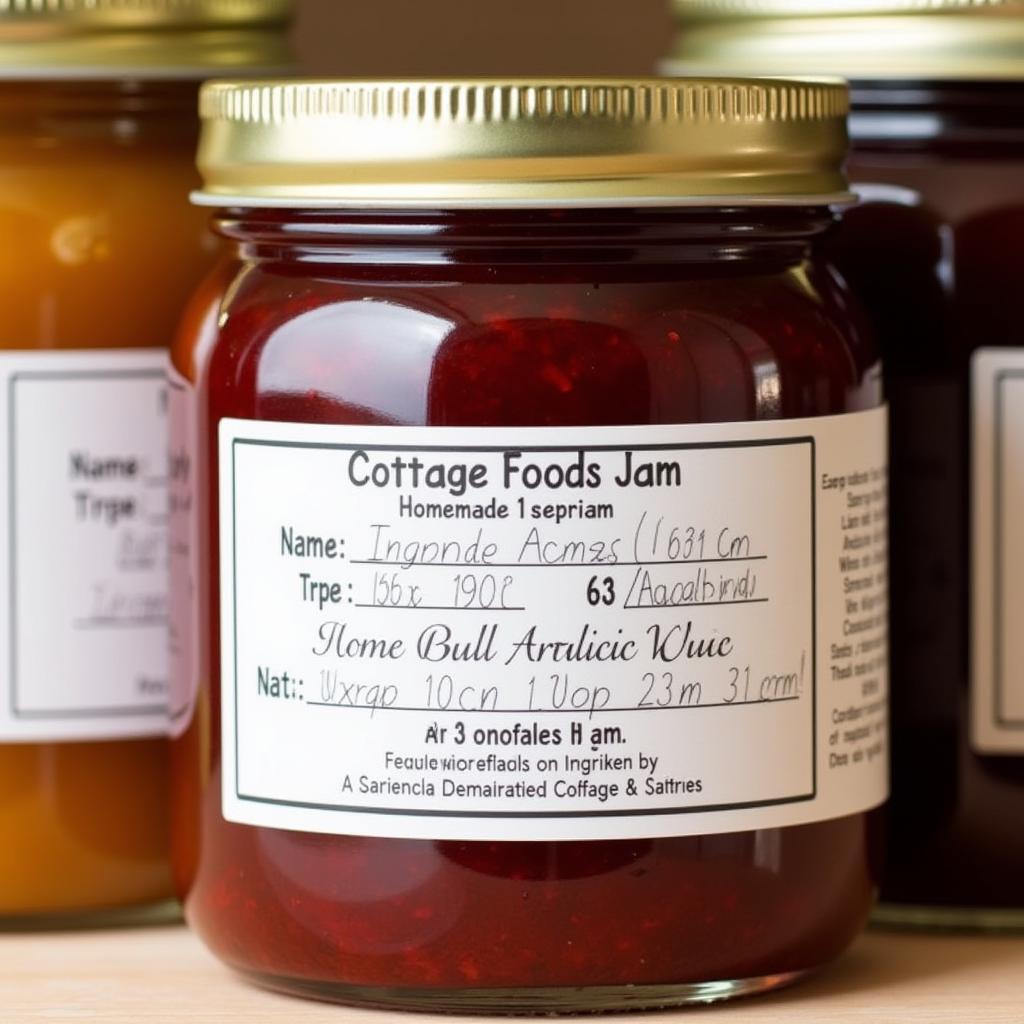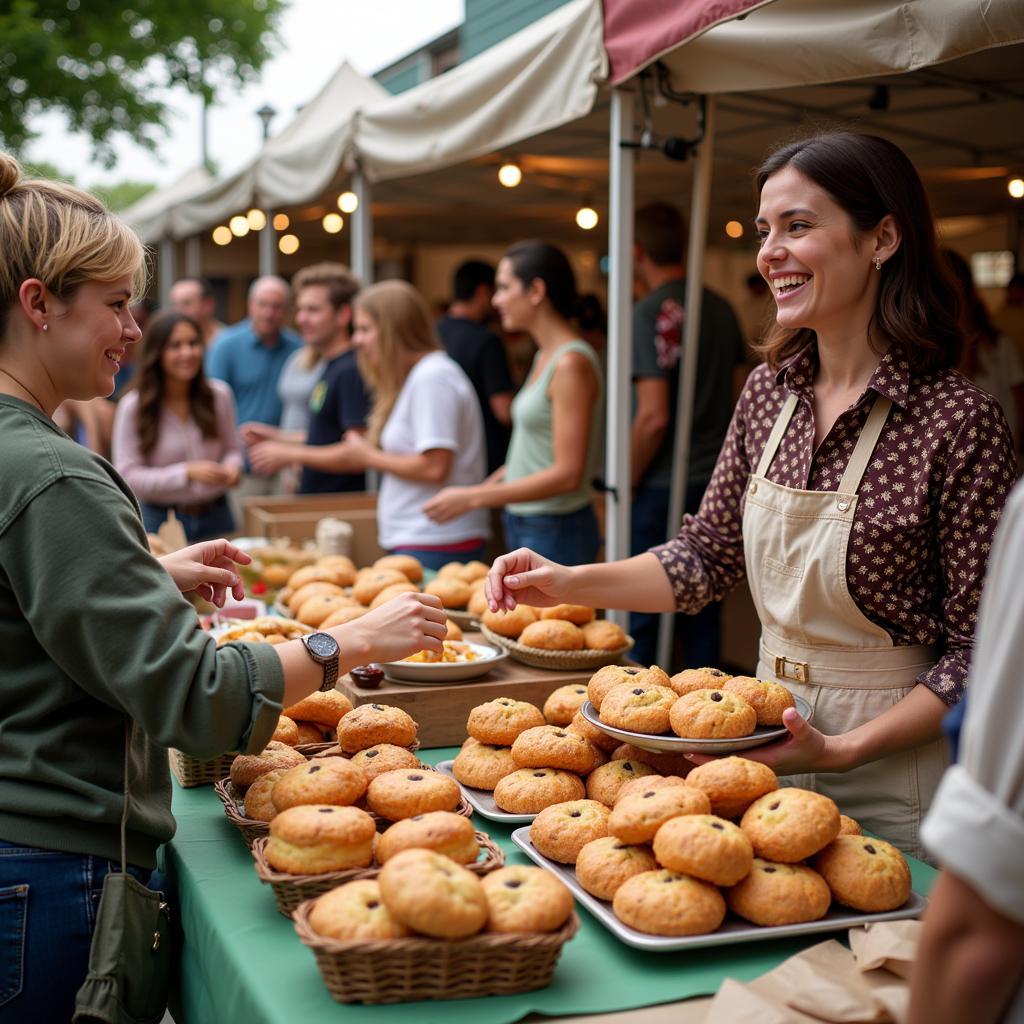The Louisiana Cottage Food Law allows home-based food businesses to thrive while ensuring consumer safety. This law regulates the production and sale of certain food items made in home kitchens, opening up opportunities for passionate cooks to turn their culinary talents into profitable ventures. Understanding this law is crucial for anyone looking to start or expand a home-based food business in Louisiana.
What is the Louisiana Cottage Food Law?
The Louisiana Cottage Food Law defines specific regulations for preparing, labeling, and selling homemade food products. This law aims to support small-scale food entrepreneurs while maintaining public health standards. By adhering to these guidelines, home-based food businesses can operate legally and build trust with their customers.
Foods allowed under the Louisiana Cottage Food Law generally include non-potentially hazardous foods that don’t require refrigeration. Examples include baked goods, jams and jellies, candies, dry mixes, and certain types of snacks. These are items considered less susceptible to bacterial growth at room temperature.
Understanding the Requirements of the Louisiana Cottage Food Law
To legally operate under the Louisiana Cottage Food Law, several key requirements must be met. These regulations cover aspects of food preparation, labeling, and sales practices. Familiarizing yourself with these requirements is essential for a successful cottage food business.
One crucial aspect is proper labeling. Labels must include the name and address of the cottage food operation, the name of the food product, all ingredients listed in descending order of predominance, the weight or net volume, and any allergen information. Accurate and comprehensive labeling builds consumer confidence and ensures compliance with the law.
Another important aspect is limitations on sales venues. Direct sales to consumers, farmers markets, and certain community events are generally permitted. However, sales to retail stores or restaurants are typically prohibited. Understanding these limitations is vital for planning your business strategy.
 Louisiana Cottage Food Law Labeling Requirements
Louisiana Cottage Food Law Labeling Requirements
Benefits of the Louisiana Cottage Food Law
The Louisiana Cottage Food Law offers numerous benefits for both consumers and food entrepreneurs. For consumers, it provides access to unique, locally made food products, supporting small businesses and fostering a sense of community. For entrepreneurs, the law creates a pathway to starting a food business with lower overhead costs and greater flexibility.
“The cottage food law is a game-changer for aspiring food entrepreneurs,” says fictional food business consultant, Amelia Broussard. “It allows them to test the waters and build a customer base before investing in a larger commercial kitchen.”
The law also encourages culinary innovation and creativity, allowing home cooks to share their passion for food with a wider audience. By providing a legal framework for small-scale food businesses, the law contributes to the growth and diversity of the local food scene.
 Louisiana Cottage Food Law Farmers Market
Louisiana Cottage Food Law Farmers Market
Is the Louisiana Cottage Food Law Right for You?
The Louisiana Cottage Food Law provides a fantastic opportunity for many, but it’s not a one-size-fits-all solution. Consider your business goals, the type of food you want to produce, and your comfort level with regulations. Thorough research and planning are key to success.
“Understanding the limitations is just as important as understanding the opportunities,” advises fictional legal expert, Jean-Paul Lemaire. “Make sure the law aligns with your long-term business vision.”
Conclusion
The Louisiana Cottage Food Law offers a pathway for passionate cooks to turn their culinary creations into thriving businesses. By understanding and adhering to the regulations, you can legally share your homemade delicacies with your community. This law empowers small-scale food entrepreneurs and contributes to the vibrant culinary landscape of Louisiana.
FAQ
-
What foods are not allowed under the Louisiana Cottage Food Law? Foods requiring refrigeration, such as meat, poultry, and dairy products, are generally not allowed.
-
Where can I sell my cottage food products? Direct sales to consumers, farmers markets, and approved community events are generally permitted.
-
Do I need a permit to operate a cottage food business? While not always required, checking with your local parish health department is recommended.
-
Are there labeling requirements for cottage food products? Yes, specific labeling requirements must be followed, including listing ingredients and allergen information.
-
Where can I find more information about the Louisiana Cottage Food Law? The Louisiana Department of Health provides resources and guidance on cottage food regulations.
-
What are the penalties for not complying with the Louisiana Cottage Food Law? Penalties can vary, including fines and potential business closure.
-
How can I ensure my cottage food operation is compliant? Staying informed about updates to the law and consulting with local authorities is essential.
Common Scenarios
-
Scenario 1: You want to sell your famous pralines at the local farmers market. This is generally permissible under the law, provided you follow labeling and sales regulations.
-
Scenario 2: You dream of opening a bakery selling custom cakes. While the cottage food law may allow you to start small, scaling up to a full-fledged bakery will eventually require transitioning to a commercial kitchen and obtaining the necessary permits.
Further Reading and Resources
Explore other articles on Mina Cones Food for recipes and tips on running a food business.
Need support? Contact us at Phone: 02437655121, Email: [email protected] Or visit our address: 3PGH+8R9, ĐT70A, thôn Trung, Bắc Từ Liêm, Hà Nội, Việt Nam. We have a 24/7 customer service team.